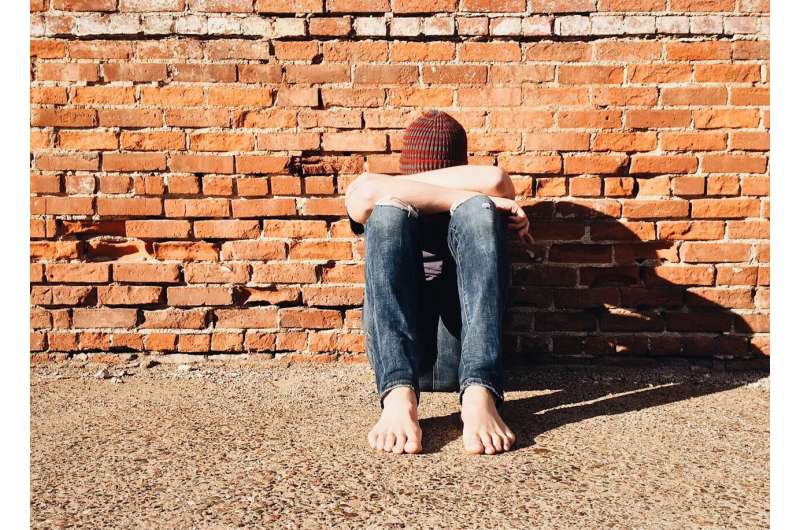Young Eastern Europeans in UK: Experiencing more racism, xenophobia since Brexit vote

Young Eastern Europeans living in England and Scotland have experienced more racism and xenophobia since the Brexit vote, with some saying that teachers were failing to protect them, research says.
Researchers surveyed or spoke to 1,100 people aged 12-18 originally from Central and Eastern Europe who have lived in the UK for at least three years.
The European Sociological Association conference in Manchester, heard today [Thursday 22 August] that 77 percent said they had experienced racism, xenophobia and bullying. Almost half—49 percent—said they had experienced or witnessed a rise in incidents since the Brexit referendum in 2016.
Dr. Daniela Sime, of the University of Strathclyde, said incidents included verbal abuse in the street and public transport and physical attacks on individuals and property, but that most occurred at school.
She quoted from various participants: "At my last school, someone made xenophobic comments about my nationality and tried to burn my hair—last year, in my current school, a group followed me around chanting "UKIP" and that I should f**k off back to my country," said one.
Another said: "I was bullied from the age of six to the age of 12. I had rocks thrown at me, vile rumor spread about me, my possessions stolen—I was mocked and verbally abused simply because I'm Polish."
Some complained that their teachers had failed to stop the abuse. "Teachers do it—my teacher would say 'give it up for Poliski boy," and they'll all laugh—I'm used to it now," said one.
Another said: "An examiner gave me a low grade on a well-made project due to my accent, which he noticed during a presentation."
One said: "The teachers hear the racist, sexist comments made by students, but choose to ignore them. Or even better, they laugh along. Trust me, as unrealistic as it sounds, it happens more often than you think."
Dr. Sime told the conference that the data "showed how incidents are not always taken seriously by teachers and these instances have a direct impact on young people's mental health and sense of belonging to the UK.
"The role of teachers, who were often said to be bystanders and did not intervene, or in some situations become perpetrators themselves, emerged as a profoundly important dimension of young people's everyday experiences of marginalization.
"Teachers were, on occasions, not only discriminatory in their practices, by ignoring young people's presence in class, but also racist in the views openly expressed during lessons or through ignoring incidents of racism they overheard.
"Young people said that, in the vast majority of cases, they did not report incidents because teachers knew and did not act to counter the culture of racism and xenophobia, or because of their belief that teachers would not be interested.
"Some mentioned teachers hearing racist and xenophobic comments and these being ignored by teachers in class or corridors."
Dr. Sime said that racist and xenophobic incidents also happened outside school, based on young people's accounts:
"During a football match, a gang of Scottish guys came and assaulted my friends with wrenches, pipes and a hammer for being Polish," one said.
'[On the] street, being called a thief, disgrace to the UK and a prostitute."
"On our property, next door neighbor broke our fence and threw small stones at our windows. We've also had our fence set on fire."
These incidents happened to girls as well as boys: "Being called a prostitute based on my background, being told to go back to my country, a couple of more severe incidents included having rocks thrown at me and being chased down the street by a group of teenage boys."
Despite these negative experiences, the majority of respondents (74 percent) felt 'fairly satisfied' or 'very satisfied' with their life in the UK, and only 12 percent said they did not think they would live in the country long term.
To help teachers tackle prejudice-based bullying in schools, the research team has produced a teaching pack, in collaboration with RespectMe. This can be downloaded from the project website: www.migrantyouth.org
Of those taking part in the survey, 56 percent were Polish; 10 percent were Romanian; 9 percent were Lithuanian; and other countries each 5 percent or less. The research was carried out across the UK between October 2016 and May 2018. Dr. Sime, Reader in Education and Social Policy at Strathclyde University, worked with academics from Durham and Plymouth universities on the project, which was funded by the Economic and social Research Council and called Here to Stay? Identity, citizenship and belonging among settled Eastern European young people in the UK.
Provided by European Sociological Association

















